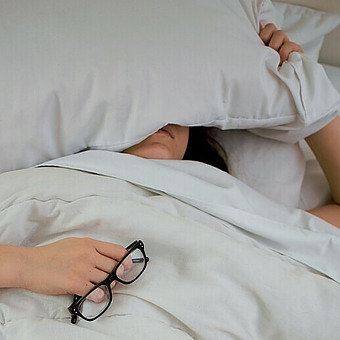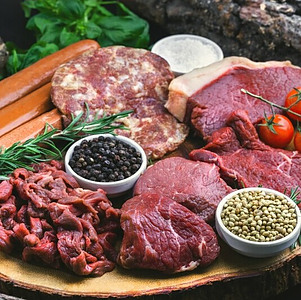The Vital Connection Between Sleep, Nutrition, and Mental Health
In the fast-paced world we live in today, where demands on our time and energy are ever-increasing, the importance of prioritizing our mental health cannot be overstated. Among the various factors influencing mental well-being, one often overlooked but crucial element is sleep. In this blog post, we will explore the significant role sleep plays in mental health, delve into the impact of magnesium and other supplements on sleep quality, and discuss the unique relationship between diet, particularly the carnivore diet, and a good night’s rest.

The Sleep-Mental Health Connection:
Sleep is not merely a time of rest for the body; it is a critical period during which the brain undergoes essential processes for emotional regulation, memory consolidation, and overall cognitive function. Chronic sleep deprivation has been linked to an increased risk of mental health disorders such as anxiety, depression, and mood disorders. Adequate sleep is foundational for maintaining emotional resilience and psychological well-being.

Magnesium and Sleep Quality:
Magnesium, an essential mineral, plays a pivotal role in numerous bodily functions, including muscle and nerve function, blood glucose control, and bone health. It is also recognized for its ability to promote relaxation and support a healthy sleep cycle. Research suggests that magnesium can help regulate neurotransmitters involved in sleep and reduce the levels of the stress hormone cortisol. Including magnesium-rich foods like leafy greens, nuts, and seeds in your diet or considering magnesium supplements can contribute to improved sleep quality and mental health.
I began taking Magnesium about two months ago and the difference in my sleep is NIGHT AND DAY (no pun intended lol). I actually take Magnesium Glycinate by Naturebell. It comes in 500mg capsules, and I take one before bed. Simple.
Other Vitamins and Supplements for Sleep:
In addition to magnesium, several other vitamins and supplements can positively impact sleep. Vitamin D (I take Vitamin D by Naturebell), for example, has been linked to sleep quality, and deficiencies have been associated with sleep disorders. Melatonin (I take Melatonin from Naturebell), a hormone that regulates the sleep-wake cycle, is available in supplement form and can be helpful for individuals with irregular sleep patterns or insomnia.

The Impact of Diet on Sleep:
Diet plays a crucial role in overall health, and its influence extends to sleep quality. Consuming a well-balanced diet that includes a variety of nutrients is essential. Avoiding excessive caffeine, sugary foods, and heavy meals close to bedtime can contribute to better sleep hygiene. Hydration is also important, as dehydration can disrupt sleep.
The Carnivore Diet and Its Impact on Quality Sleep:
In the realm of dietary choices and their influence on sleep quality, proponents of the Carnivore Diet argue that a nutrition plan focused on animal products can offer unique benefits. Figures like Gary Brecka and Dr. Eric Berg have explored the intricate connection between diet and sleep, shedding light on how a carnivore or keto-based diet may hold a distinct advantage when it comes to achieving restorative and high-quality sleep.
Gary Brecka, well known for working with people such as Grant Cardone (Real Estate Mogul) and recently on the Joe Rogan Podcast, has emphasized the potential benefits of a Carnivore Diet for sleep hygiene. According to Brecka, the elimination of certain plant-based foods, often rich in allergens and anti-nutrients, may contribute to a reduction in sleep-disrupting factors. This perspective aligns with the idea that certain components in plants might adversely affect some individuals, influencing their sleep patterns.
Dr. Eric Berg, a YouTube health educator and chiropractor, has also delved into the impact of diet on sleep. Advocating for a ketogenic approach, Dr. Berg highlights the role of a low-carbohydrate, high-fat diet in stabilizing blood sugar levels and promoting metabolic health. Stable blood sugar is crucial for preventing nighttime awakenings, and proponents argue that a carnivore or keto-based diet can provide a steady supply of energy throughout the night, fostering uninterrupted and rejuvenating sleep.
In the pursuit of optimal mental health, acknowledging the many connections between sleep, nutrition, and diet is paramount. Adequate sleep, supported by the right nutrients and a balanced diet, can significantly contribute to mental well-being.
Shawn Johnson
Fitness/Carnivore Nutrition Coach
BeCarnivorous.com
Connect with me:
Instagram: @itsyonson
Facebook: Shawn Johnson
Twitter/X: @itsyonson
“Demand More”

